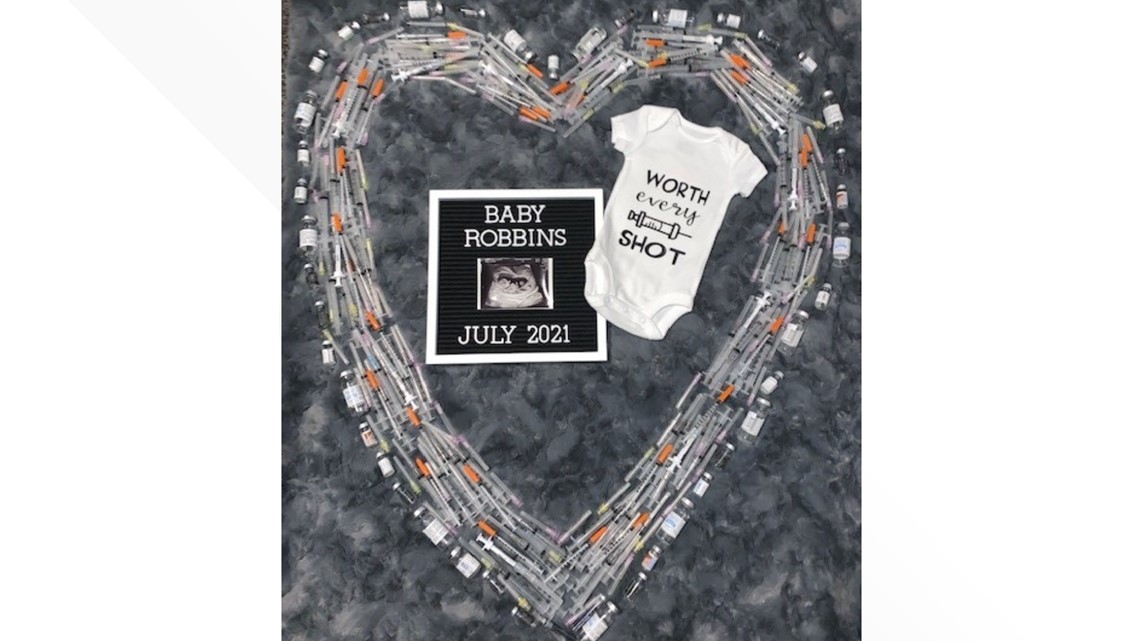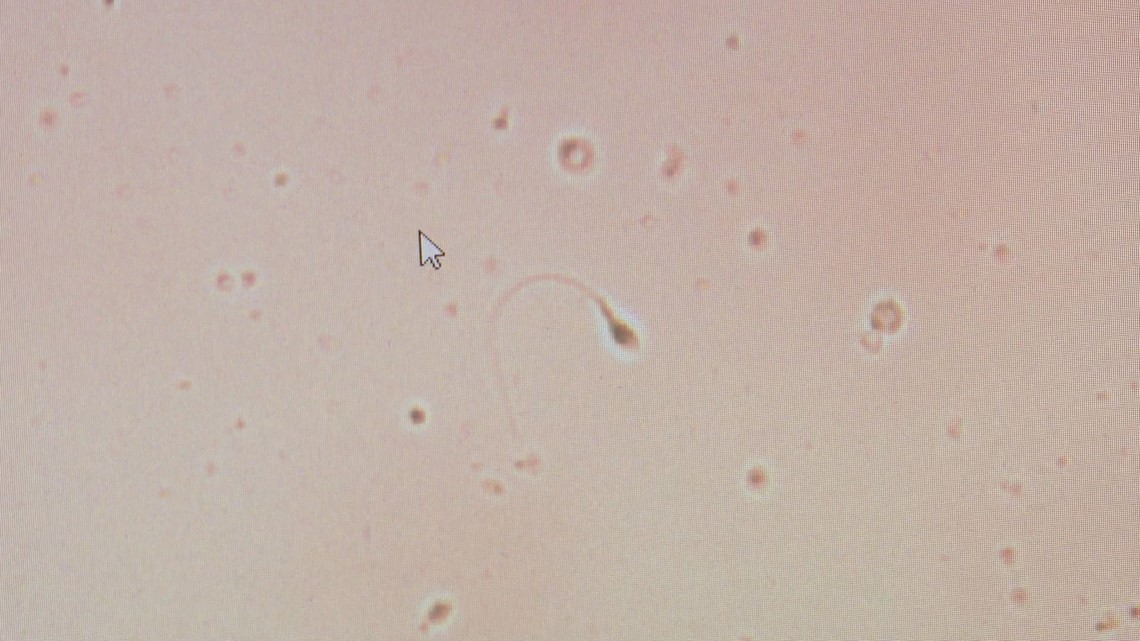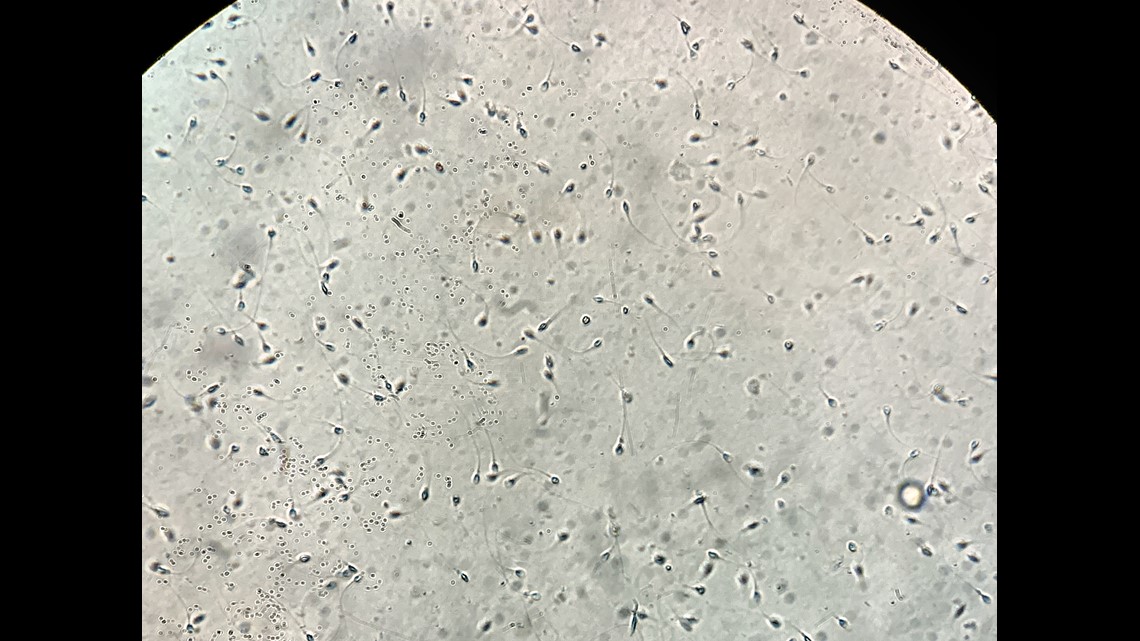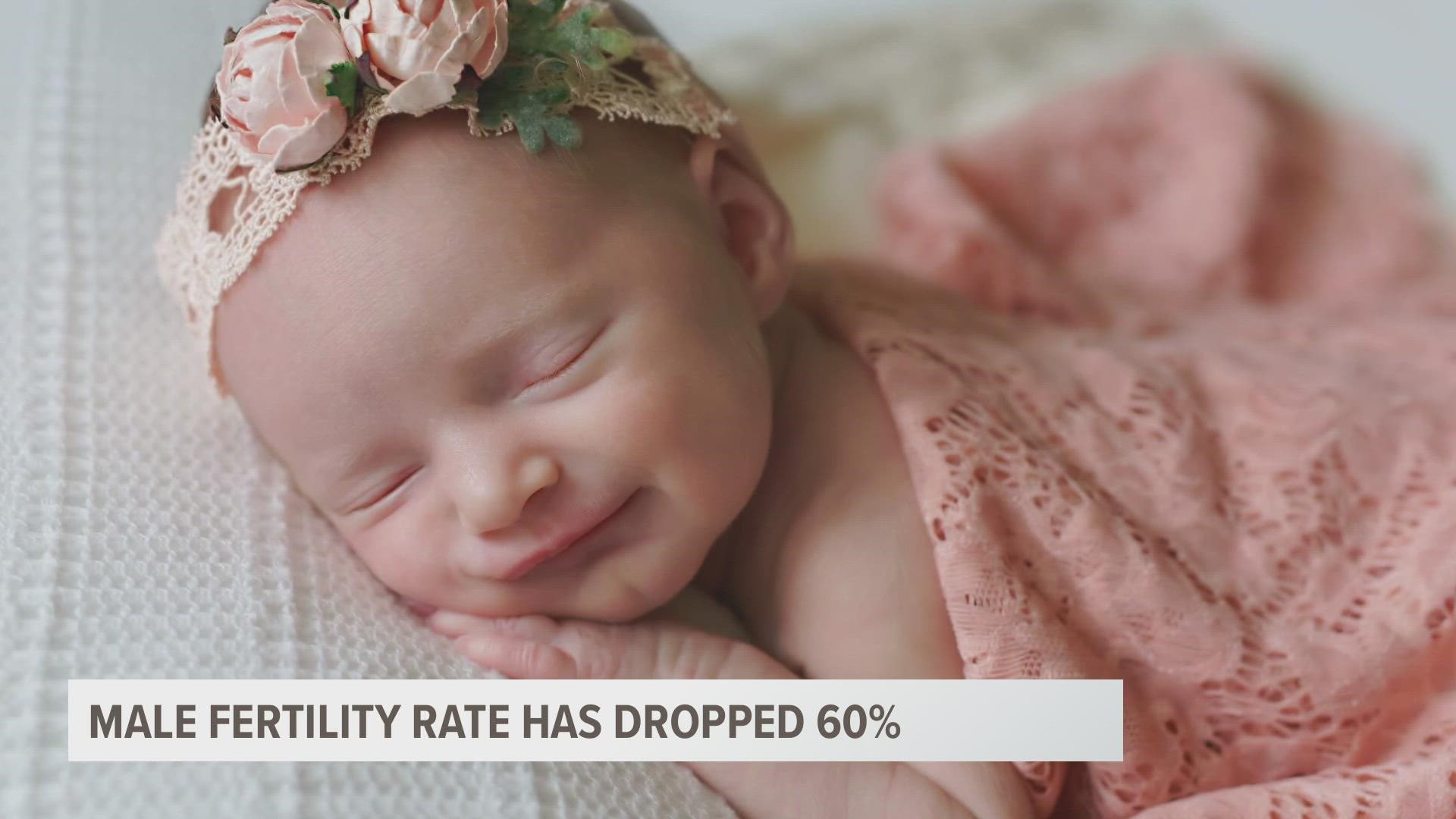GRAND RAPIDS, Mich. — For many couples, starting a family is an exciting time.
"I wanted kids young," said Austin Robbins. But for him and his wife Aubrey, things didn't go as planned.
"We started trying and trying and trying."
A fertility test revealed Austin had a low sperm count. And invitro fertilization (IVF) was their only option.
According to the CDC, 20% of couples will experience infertility problems, and that number continues to rise every year.
Infertility is often considered the woman's problem, but new focus is starting to be put on men.
Austin describes the emotional journey of conceiving through IVF.
"We had our first embryo transfer, and it didn't work and it was heartbreaking. And then our second transfer we had two embryos implanted and one took our daughter and it was just amazing," he said.
After nearly two years and two rounds of IVF, Austin and Aubrey's daughter Larkin was born. Aubrey shared this picture, showing every shot it took to bring their daughter into the world.


Austin isn't alone in his struggle.
In the last 40 years, sperm counts in men have dropped by nearly 60% according to a 2017 study by Mount Sinai University.
Dr. Valerie Shavell, a fertility specialist with The Fertility Center in Grand Rapids is seeing the trend.
"We're seeing a lot of sperm counts that are lower, decreased motility. I'm starting to send off more samples to look at DNA fragmentation. And so we're definitely seeing more of it over the years."
Research found about 30% of infertility among couples is due to low sperm count.
In her lab, Dr. Shavell shows us the evidence.
The first is a recent sample with only a few sperm. The second is a healthy sample.




On the day we visited the lab, the majority of samples had low sperm counts.
Dr. Shavell says there are many potential causes of low sperm count, from stress to obesity, genetics, even our environment.
"Definitely there is a role of the toxins that are in our environment. And we know that there are certain toxins that can cause DNA damage in sperm. BPA, for example," she said.
BPA is found in almost everything, from plastic food containers to carpeting, shampoos and body lotions—even our bottled water.
So what can men do to protect their fertility?
Dr. Shavell says eat a healthy diet, exercise and lose weight.
"It can help. It might not completely reverse the damage that's done, but sperm production start to finish is about 70 days or so. So we can definitely see an impact and changes but it does take time."
In addition to those changes, Dr. Shavell recommends men have their fertility checked early.
"They could have a semen analysis done to find out more about their fertility even if they're not ready to father a child, just to have that information."
And Austin agrees.
"I would say probably as soon as you turn 18, more than likely you should go in and see if it's an option to even have them," he said.
Austin and Aubrey are already planning for baby number two. Aubrey is preparing to got through another round of IVF treatments.
"It's hard, emotionally, physically. Without it all, we wouldn't be where we're at. I'm thankful that it's an option for us."
Dr. Shavell says one of the biggest issues with male infertility is that many men don't like the process of sperm collection, which is why there is now a whole new market in at-home kits that men can use and send in for analysis.
The Fertility Center is also offering free semen analysis at their clinic in Grand Rapids through the month of May as part of Fertility Awareness Month. Just be sure to mention you saw this story on 13 ON YOUR SIDE.
►Make it easy to keep up to date with more stories like this. Download the 13 ON YOUR SIDE app now.
Have a news tip? Email news@13onyourside.com, visit our Facebook page or Twitter. Subscribe to our YouTube channel.

